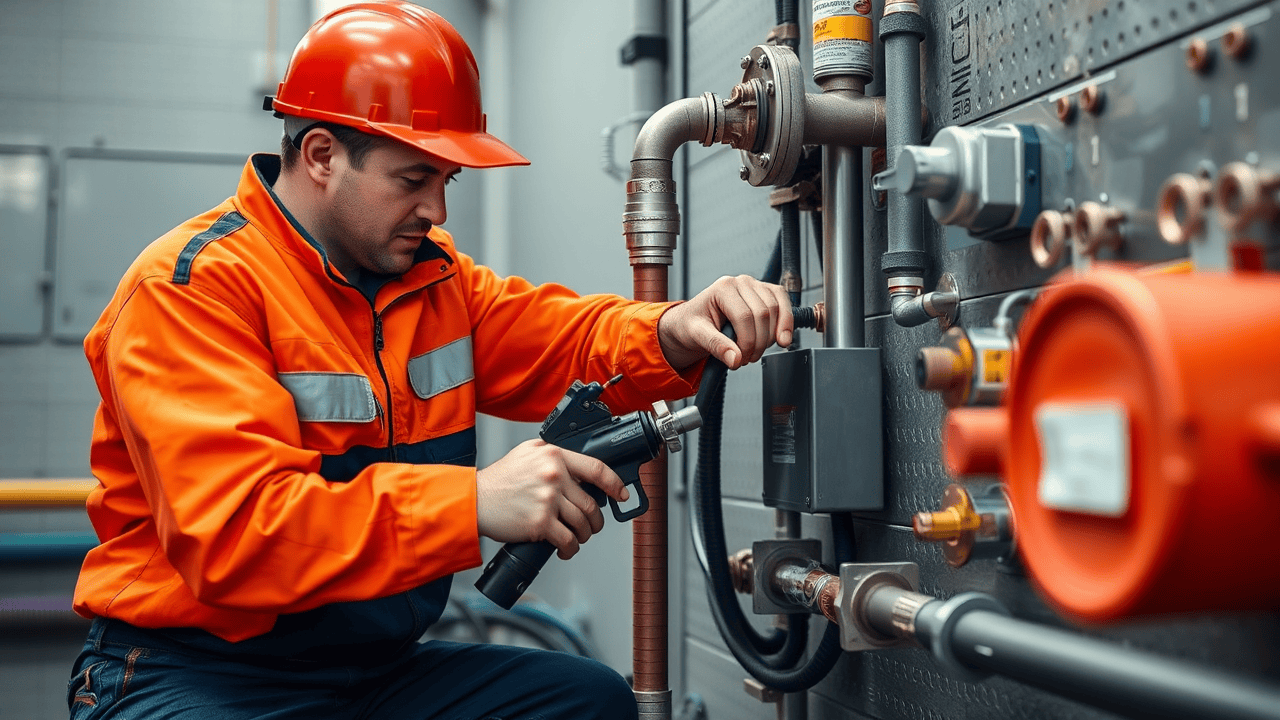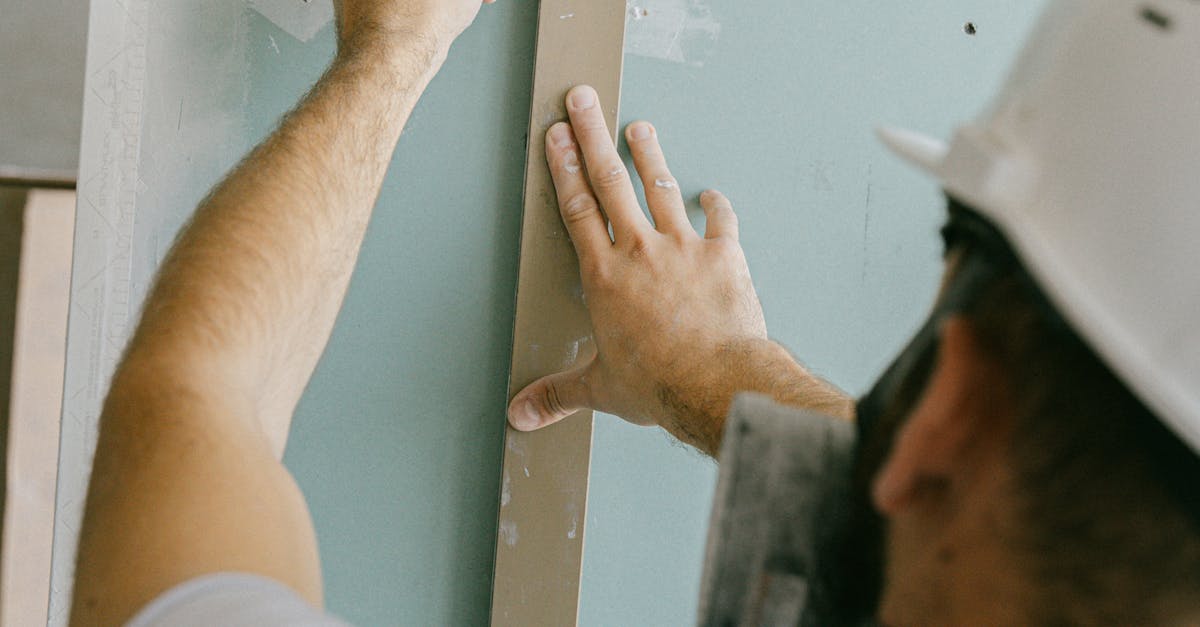
The Process of Installing a Gas Line
Installing a gas line involves several crucial steps to ensure safety and compliance with local regulations. First, a thorough assessment of the property's layout is necessary. The plumber will determine the best route for the gas line, taking into consideration any obstacles and the location of appliances that will use gas. The next step entails selecting the appropriate materials, such as gas-rated piping and fittings, to ensure durability and safety in operation.
Once the planning is complete, excavation may be required to lay the gas line underground. After the line is positioned, it is connected to the gas supply and appliances. Thorough testing follows to identify any leaks or pressure issues. Gas line installation and repair in Oregon must adhere to strict state and local codes, emphasizing the importance of skilled professionals in this field. This adherence not only ensures safety but also guarantees the reliability of the gas system in your home.
Steps to Safely Install Gas Lines
Installing gas lines requires a meticulous approach to ensure safety throughout the process. Plumbers must start by thoroughly planning the installation route, which involves determining the most efficient path while avoiding existing structures and utilities. This planning phase is crucial as it helps prevent potential hazards during installation. Once the route is established, plumbers obtain the necessary permits and approvals, ensuring compliance with local regulations. Gas line installation and repair in Oregon typically involves adhering to stringent guidelines set by state and local codes.
The actual installation process begins with gathering the right materials and tools, such as approved piping, fittings, and gauges. Plumbers carefully cut and assemble the piping, ensuring all connections are secure to prevent leaks. After installation, it is essential to conduct pressure tests to verify the integrity of the system. This testing helps identify any weak points before the line is put into use. These steps not only promote safety but also ensure long-term reliability for the gas line system.
Regulations Governing Gas Line Work
Regulations governing gas line work are crucial to maintaining safety and efficiency in residential and commercial settings. These laws dictate the standards to which gas line installations and repairs must adhere. In many regions, including Oregon, professional plumbers must ensure compliance with both state and local regulations. This includes obtaining necessary permits, following specific installation guidelines, and passing inspections to confirm the work meets all safety criteria.
In Oregon, gas line installation and repair fall under specific state codes designed to protect both the property and the public. Licensed professionals are required to familiarize themselves with these regulations, as they govern everything from the materials used to the installation techniques employed. Adhering to these guidelines not only ensures compliance but also serves to prevent potential hazards such as gas leaks or explosions, thus protecting lives and property.
Understanding Local Gas Line Codes
Local gas line codes are essential regulations that ensure safety and functionality in the installation and maintenance of gas lines. Each municipality may have specific codes that reflect the area's unique needs and safety requirements. Understanding these regulations is crucial for compliance and to prevent potential hazards associated with improperly installed gas lines. Knowledge of local codes helps maintain the integrity and safety of the gas systems within homes and businesses.
For those seeking gas line installation and repair in Eugene, Oregon, adhering to these guidelines is especially important. Local authorities frequently update their codes to reflect the latest safety standards and technologies. Homeowners and contractors must stay informed about these changes to ensure proper installation and avoid costly fines or dangerous situations related to gas leaks.
Benefits of Hiring a Professional Plumber
Hiring a professional plumber for gas line services ensures that the installation and repair are performed correctly and safely. Professionals possess the right training and experience to handle the complexities involved in gas line work, which can be hazardous if not approached properly. Their expertise minimizes the risk of gas leaks or related hazards, providing homeowners with peace of mind. In addition, thorough knowledge of local codes and regulations helps ensure that all work meets the necessary standards.
Gas line installation and repair in Oregon requires compliance with specific regulations. A licensed plumber understands these laws and can navigate the permitting processes effectively. This not only saves time but also guarantees that the work done is up to code, avoiding potential legal issues down the line. With professional plumbers, homeowners can trust that their gas systems are installed and maintained with the highest levels of safety and efficiency.
Advantages of Expert Gas Line Services
Expert plumbers bring a wealth of knowledge and experience to gas line projects, ensuring that installations and repairs meet all safety standards. Their training allows them to recognize potential hazards and address issues that might not be apparent to those without specialized training. This is particularly important for gas line installation and repair in Oregon, where regulations can vary by region and require a thorough understanding of local codes.
Hiring a professional also streamlines the process, reducing the time and effort needed to complete a job. Professionals utilize industry-standard tools and techniques, which enhances the quality of the work performed. This proficiency minimizes the risk of leaks or malfunctions, delivering peace of mind to homeowners. With their expertise, plumbers can help ensure that gas lines operate efficiently and safely, safeguarding both property and occupants.
FAQS
Why do plumbers work on gas lines?
Plumbers work on gas lines because they are trained to handle the installation, maintenance, and repair of gas systems safely and effectively, ensuring compliance with local regulations and codes.
What qualifications do plumbers need to work on gas lines?
Plumbers typically need a valid plumbing license, specialized training in gas line installation, and knowledge of local codes and safety regulations to work on gas lines.
What are the potential dangers of improperly installed gas lines?
Improperly installed gas lines can lead to gas leaks, which pose serious risks such as explosions, fires, and health hazards from inhaling toxic gases.
How can I tell if my gas line needs repair?
Signs that your gas line may need repair include the smell of gas, hissing noises near the line, dead vegetation above the line, or fluctuating gas bills without an explanation.
Why is it important to hire a professional plumber for gas line work?
Hiring a professional plumber is important because they have the expertise to ensure that gas lines are installed and maintained correctly, minimizing risks and ensuring compliance with safety standards.


